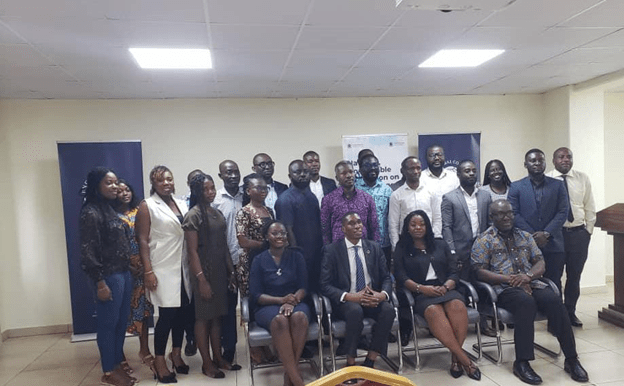The United Nations Global Compact Network Ghana has partnered the Trade Union Congress (TUC), Ghana Employers Association (GEA) and heads of other associations and institutions to discuss steps for improving workers’ standard of living.
Highlighting the meeting’s purpose, Executive Director of the UN Global Compact Ghana, Tolu Lacroix, said the dialogue seeks to partner all stakeholders and define what a living wage is; discuss the process needed to pull it off; and to link its importance to the national objective of achieving the Sustainable Development Goals (SDGs).
“What we are trying to achieve is to have a conversation with all key stakeholders in Ghana about what a living wage is; get inputs from various institutions; advocate and get support for its implementation; and also to associate its contribution to the SDGs,” he said.
“The backbone of every economy and the foundation of a nation’s strength is the worker. Looking at every strong nation in history – including Germany, Japan and the United States of America, among others, their wealth and strength have always been from productivity which is achieved through the employee. Most important is how we treat the worker – how a country makes sure that workers and their families have a sustainable means of living,” he emphasised.
Mr. Lacroix indicated that when people can afford their basic needs like shelter, food and clothes, they not only survive but also contribute productively to society; which leads to achieving goals like low poverty rates, gender equity, decent work and economic growth, and reduced inequalities.
He assured that the network would, after the meeting, engage a larger community including government to make the project a success.
“The past three years have been tough with factors like COVID-19 and high inflation, but it still does not justify the amount of US$1.3- US$2 given to workers,” said General Secretary-TUC, Yaw Baah.
Dr. Baah revealed that even with this low amount, some employers still refuse to pay their workers accordingly due to lack of enforcing minimum wage provisions.
He indicated that objectives toward a decent minimum wage includes achieving increased incomes for workers in both private and public sectors of the economy, as a means of reducing income poverty among workers and their families.
Speaking on steps taken so far, he indicated that the National Tripartite Committee (NTC) began discussions toward the adoption of a National Living Wage in 2005; and by 2007, after a series of technical consultative meetings, the NTC had agreed on the broad parameters – definition of the living wage and other key concepts, as well as the approach in determining a living wage for Ghana.
Enumerating the approach to living-wage determination, he said there would be use of the internationally-recognised lower and upper poverty lines of US$1.9 and US$2.65 per day as a benchmark; which means workers would receive US$7.6 a day (US$1.90×4 persons) or US$10.6 a day (US$2.65×4 persons).
In addition, there should also be inflation-adjusted official national lines as a benchmark, and the use of household budget on the agreed determinants using the Ghana Living Standard Survey forty (GLSS40) expenditure data and weighted using Consumer Price Index (CPI) weight and adjust for inflation.
Pledging to continue the agenda of transitioning the minimum wage to a living wage, he said the TUC will also make sure that employees work to justify the progress and ensure sustainability.
The Chief Executive Officer-GEA, Alex Frimpong, meanwhile assured that the institution supports dialogues that will help the nation to achieve the aim of having a National Living Wage; and requested that during such discussions, the national context should be taken into consideration in order to reach an objective consensus as to how, when and where the situation can be resolved.










